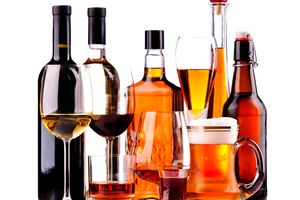Alcohol dependence or addiction: The way out

Biological factors like genetics, mental health history, and drug abuse history can contribute to alcoholism.
What you need to know:
Alcoholism mainly affects people with a past that is bothering them or a present that is not satisfying. Others are seeking validation and/or attention, which can lead to addiction.
There is a high chance of depression, anxiety, and even hallucinations among addicts.
Consider creating boundaries or taking precautions when dealing with addicts because of the hallucinations and delusional nature.
Alcoholism is a chronic, often progressive condition. Alcoholism has many short-term and long-term health effects on mental health, physical health, social functioning, and general wellbeing. The risk of death for people dependent on alcohol is higher than for those who do not drink at all. Alcoholism affects every aspect of one's life; it damages relationships, careers, finances, etc.
There are three stages in the progression of alcoholism: binge drinking followed by guilt and remorse, continuing to drink despite personal problems, and finally giving up all other interests in alcohol.
What is alcoholism?
Alcohol provides an escape from the pain, stress, and anxiety that people experience every day. But this does not last because abuse of this substance can lead you down an unproductive path called alcoholism.
Alcoholism means continuing to drink despite the consequences. These include physical problems like blackouts or liver disease, emotional issues where one becomes obsessed about drinking so much, they start avoiding other activities, and economic issues arising due to expenses related to alcohol.
According to Aunt Truphena, a counselling psychologist who also writes for Daily Nation, addiction is when one cannot confront their demon. Some alcoholics 'drink away problems, ' especially during the pandemic, which is an illusion.
The common causes of alcoholism
It can be challenging to pinpoint the triggers for alcoholism. Multiple factors could potentially cause someone to drink excessively.
- Biological factors like genetics, mental health history, and drug abuse history can contribute to alcoholism.
- Some of the psychological causes include stress, anxiety, and depression which lead people to drink excessively. Other causes include low self-esteem, isolation and loneliness, and boredom due to a lack of interest in other activities.
- Social and environmental factors are also contributors to alcoholism. These factors include the availability of alcohol, peer pressure, and being around drinkers.
Signs of addiction
You may be wondering whether you have a drinking problem or if you simply enjoy alcohol. There are some tell-tale signs of alcoholism.
- You feel guilty about drinking or try to hide your alcohol consumption from those around you.
- You have a powerful desire for more drinks that may cause problems in relationships with family members or colleagues at work.
- Another sign is when you become irritable or depressed, and being more forgetful than you were before drinking became an issue.
- The loss of interest in former hobbies/occupations; appearing intoxicated at inappropriate times, needing increased amounts so that things are "normal" again—these are signs you may have become addicted to alcohol.
Treatment for alcoholism
Alcohol detox
Alcohol detoxification, or 'detox,' is the first stage of treatment for alcoholism. It involves getting rid of all alcohol from your system while carefully managing withdrawal symptoms.
Counselling
Counselling can be used to address both the short and long-term goals of an individual with this disorder. By exploring the underlying causes of one's addiction, they will learn coping mechanisms and how to structure their lives.
Medications for alcoholism treatment
Antabuse is an FDA-approved medication that can help people quit drinking alcohol by making them sick if they drink. Naltrexone is another medication used to reduce cravings for alcohol. Some are administered orally, and others through injections. Note that the remedy is a short-term aid while you recover from the addiction.
Alternative therapies
Some alternative treatments found helpful are acupuncture, yoga practice, and meditation which can decrease anxiety levels without the adverse side effects of medications. Other forms include art, music, and equine therapy (Use of horses in treatment).
Inpatient treatment
Inpatient alcohol addiction treatment is a structured program where one stays at an alcohol rehab centre for a while. This allows them to focus on their recovery without the distractions of home and work. Treatment can include group counselling, individual counselling, medication management, and other therapies. Some programs may also include family therapy, couples counselling, and relapse prevention.




